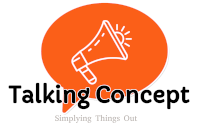An individual has a wide range of professional alternatives to choose from. Still, there is a predefined career path that we are expected to follow when we are in school. Graduate first, then go for a master’s or MBA or look for a high-paying job in an industry that can give you wealth as well as status. STATUS to survive in this ultra-competitive world!
But what if someone’s career trajectory doesn’t resemble the above-mentioned one? What if someone doesn’t follow the traditional career path but an unconventional career?
As we age, the different phases of life make us face the reality check. We get to know whether we would survive with our skills or if anything else is required. You think you have taken a degree and you can proceed with your qualifications in the required field. Things don’t work like these now. That is not enough. The settlement never comes. Something else is always required. Our needs, responsibilities, and experiences affect our career choices and ambitions more than anything else.
Why am I writing this here?
Because I have also taken an unconventional career path. I am a full-time teacher and blogger, that too after completing my engineering. When it comes to making decisions as important as my career, I prefer listening to my heart. I am still struggling to figure out whether I have made the right decision or not. And the reasons are not difficult to find especially when you see your friends working for multinational companies, earning quite a decent amount of money, while here I am wondering what to write next. ARRGGH! THE DISASTROUS COMPARISON TRAP!
It’s not that I haven’t tried. I was pretty disappointed after being turned down for numerous positions that I believed were a good match for me. I sometimes feel low about the career decisions I’ve made. There’s always an internal conflict going on in my mind because I tend to be a bit judgmental and overthinker, so I end up critiquing my choices and decisions.
What I feel is working for something means something that I would want to do every single day for the rest of my life. Also as you reach a certain age you have certain responsibilities to take care of, hence you narrow down your choices to that one job you can do well and pay your bills. So, considering all these factors, I have chosen the career path that I am pursuing right now.
It takes a lot of time sometimes years to figure out what job do you want to do for the rest of your life. Other times you try something and discover it’s not what you want. Moreover, it takes a lot of courage to face rejection and then pursue an unconventional career. Things can be scary when you don’t know where you will get your next paycheck from. And when people do it, shouldn’t we encourage them and recognize their efforts?
What do you do for a living?
This is one particular question that I always hate. It’s not because of unemployment, less pay or the prestige that earning a six-figure income post-IIT/IIMS holds. The thing is when we ask someone about their occupation, we might subconsciously judge or label them based on their response. This can lead to unfair assumptions about their intelligence, social status, or their worth as a person. One’s job is a part of his life, not his entire life. If someone is currently unemployed, underemployed, or not satisfied with their job, being asked about their profession can evoke feelings of inadequacy or frustration.
Instead of asking questions about occupation, consider asking more open-ended or empathetic questions that invite deeper conversation and connection. For example:
- What do you enjoy doing in your free time?
- What’s something that you’re passionate about?
- Have you discovered any interesting hobbies or activities lately?
These questions can help foster meaningful conversations.
All of us are struggling. We need kindness and support more than ever.
Conclusion
People who pursue an unconventional career path deserve equal credit. Not everyone achieves success in the same fixed trajectory. It takes a variety of abilities, skills, and decisions to start and continue a career.
I think it is time to normalize choosing an unconventional career path rather than continuing to adhere to outdated societal expectations of what success looks like. Embracing unconventional career paths not only encourages creativity and innovation but also promotes diversity in the workforce. It’s about valuing an individual’s passion, talents, and aspirations over traditional notions of prestige or stability. By normalizing the pursuit of unconventional careers, we empower individuals to follow their dreams and make unique contributions to the world.
Discover more from Talking Concept
Subscribe to get the latest posts sent to your email.




